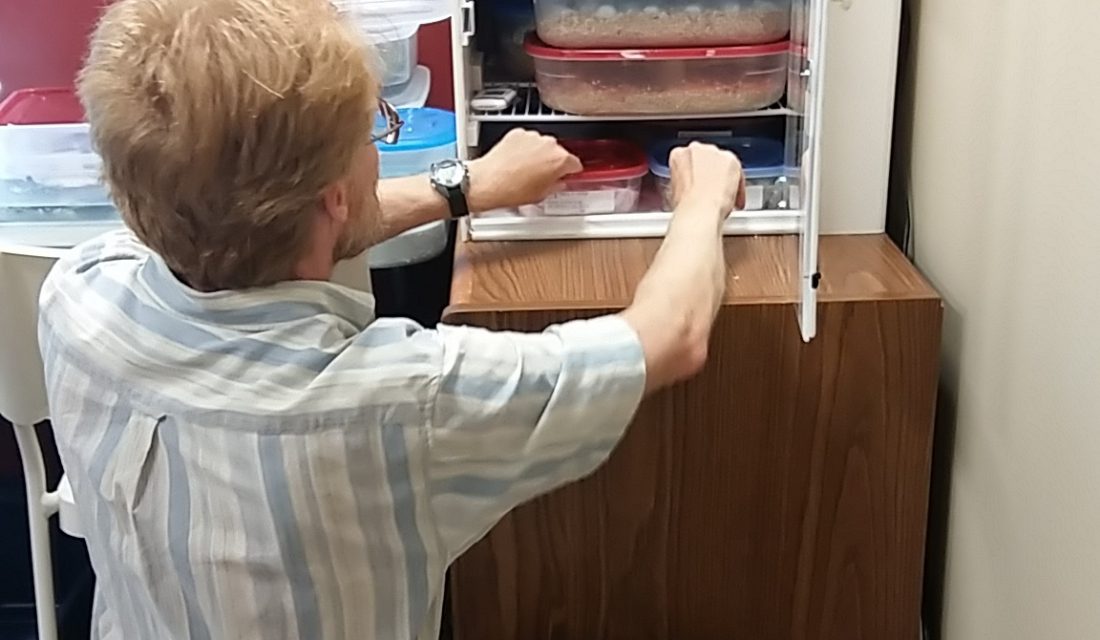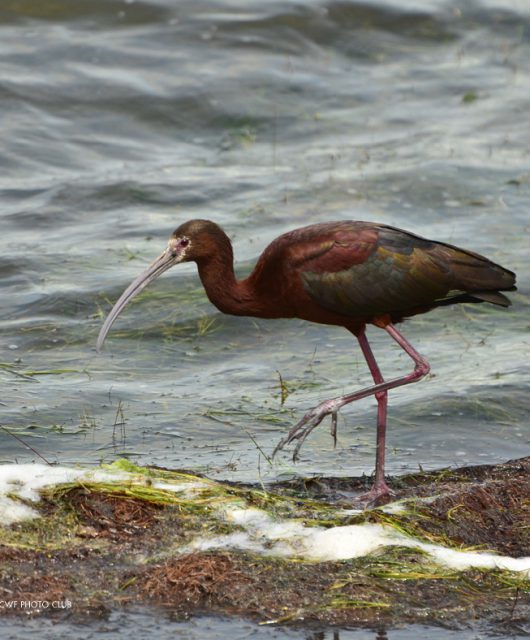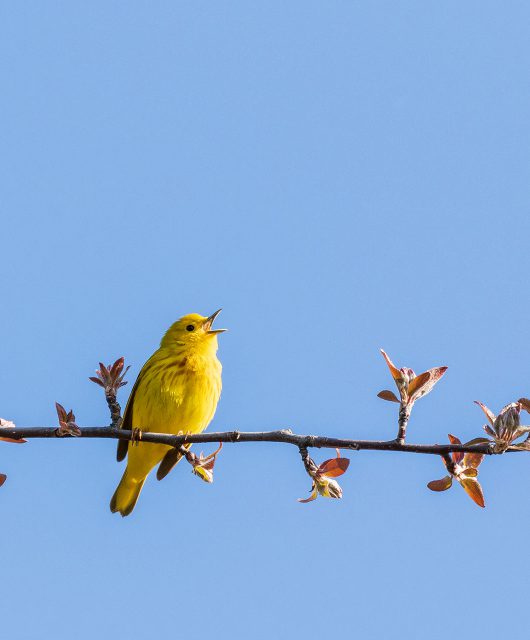Turtles are in serious trouble.
All eight species of freshwater turtles in Canada are listed as Species At-Risk. This makes turtles one of the most endangered groups of wildlife in Canada. Turtles face many threats, including:
- Habitat loss
- Being hit by cars and trucks on roads
- High rates of nest predation
In 2018, the Canadian Wildlife Federation began collecting and incubating Snapping Turtle and Blanding’s Turtle eggs in eastern Ontario to help turtle populations. The eggs are carefully collected from wild nests and incubated at CWF headquarters. The hatchlings of each nest are then released at the wetland closest to the nest site.
Last year we collected over 400 eggs. More than 95 per cent of the fertilized eggs hatched out, allowing us to release almost 400 hatchlings. This year, the CWF Turtle Team acquired a second incubator that allowed us to collect and incubate more eggs. After many late nights of hard work, the Turtle Team collected over 500 Snapping Turtle and Blanding’s Turtle eggs.
Why is incubating eggs so beneficial to turtle populations?

- In many areas, nest predators such as raccoons are very abundant. Raccoons have adapted to human ways and increased their populations. It is common for raccoons to destroy more than half of turtle nests – in some areas, they may take 80 per cent or more of nests. That is a lot of lost reproduction.
- If it is a cool and wet summer, there may not be enough time for the eggs to hatch before fall arrives. In central and eastern Ontario, turtle eggs may only hatch in years when temperatures are average or above average.
- Some nests along roadsides will be missed by predators, but these nests still face other risks. Regular maintenance along roadsides can include grading the road shoulder, which can accidentally dig up nests. And in some areas, roadsides are sprayed with herbicides to control unwanted plants, which can also affect nests.
- The eggs that do hatch are still not necessarily safe. Hatchlings often emerge from the nest in late summer or early fall. If the nest is on the roadside, hatchlings may disperse onto the road, only to be run over during their first day out of the nest.
- Hatchlings that avoid being run over must still find their way to water. Some roadside nests are only a few metres from water, making the trek fairly easy for the hatchlings. Other roadside nests we’ve found have been more than 100 metres from water. This is a huge distance for toonie-sized hatchlings to travel – assuming they go in the right direction!
Collecting and incubating the eggs avoids these and other threats. The eggs are protected from nest predators such as raccoons. The temperature and humidity are controlled so the eggs hatch out on time. The hatchlings can avoid being run over by cars and making the lengthy trek to water.

The vast majority of turtle eggs never result in hatchlings entering the wetland. By incubating the eggs and releasing the hatchlings at the nearest wetland to the nest, we are giving turtle reproduction a huge boost. The hatchlings still face many threats after being released, but they will have overcome some of the biggest hurdles in a turtle’s life.



4 comments
A busy day in the south end of the Bruce Peninsula today. I located 4 snapping turtles making scrapes (nests) in the shoulder of two relatively busy roads. Are you interested in checking out the nest sites?
Hello! Unfortunately this is out of range of our partner group, Scales.
You might want to check out this new resource to see if any group is collecting and incubating eggs in that area: https://otcn.ca/
Saw 2 snappers nesting near my home, roadside in the gravel, along with a bunch of already dug up nests from predators. Do you have people here to collect them? I live in Tamworth ont. near kingston. 613-539-2616.
Hello! Near you, there is a group called Turtle Kingston. Their website says:
“Starting in 2023, nest protectors will be available to the public at the Potter’s Nurseries at 690 Golden Mile Rd, Kingston, ON K7M 6K6. Each nest protector can be purchased at cost (for the materials).
Our Nesting Program Coordinator can be reached directly at [email protected] if you have any further questions.”
Good luck!